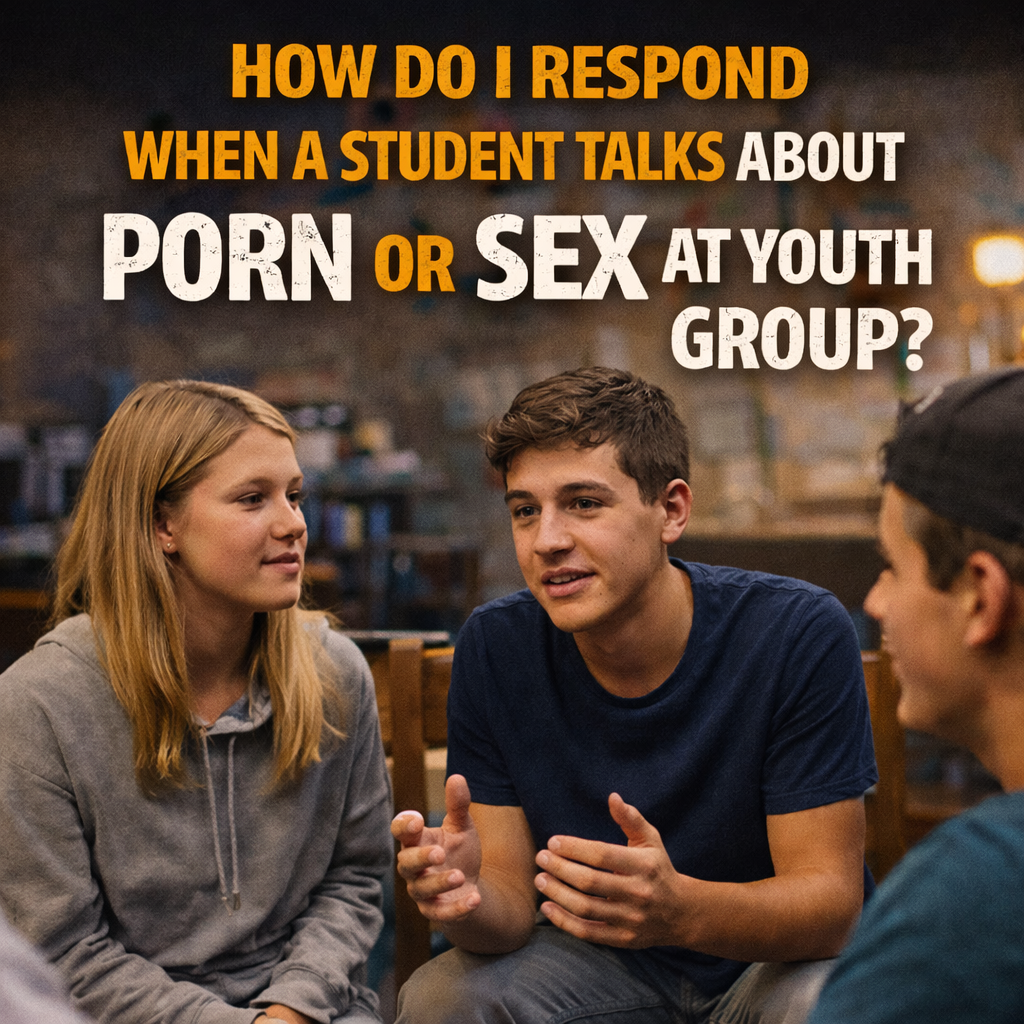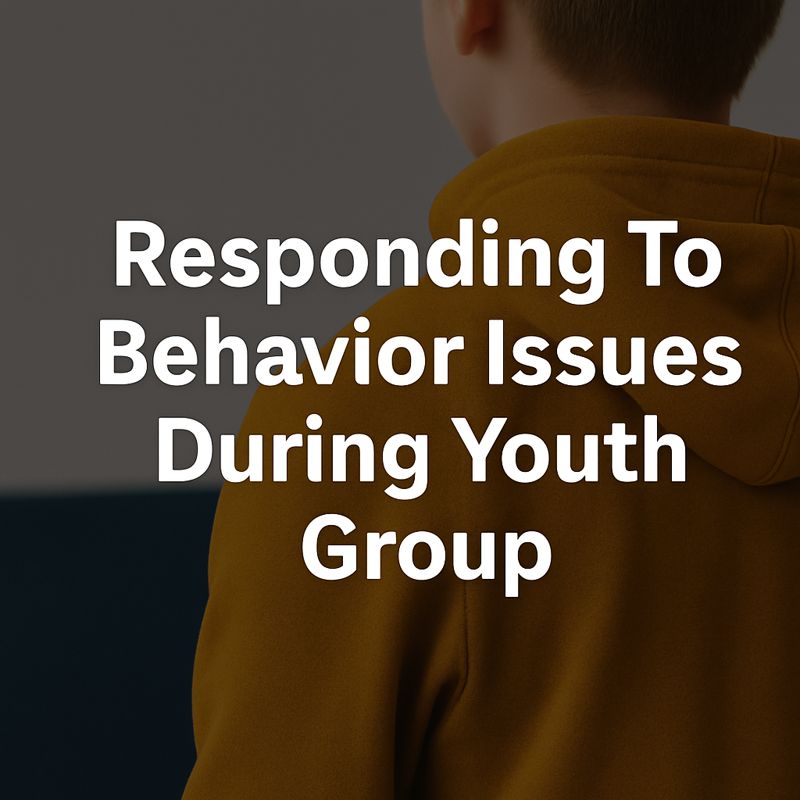
5 Types of Youth Games for 3 Students or Less
When only a few students show up to the youth group, it can feel hard to play games. It’s like

For some youth pastors, theology can feel a little overwhelming. This is especially true for youth leaders who are walking into a youth pastor role without formal theological training at a university or seminary. You love teenagers. Someone convinced you to try this whole youth leader thing out. It’s a little scary figuring out something like the role of theology in youth ministry curriculum. You’ve probably thought something like the following to yourself:
“Aren’t students just trying to survive high school? Do they really need deep doctrine?”
“I don’t want to bore them with complicated theological concepts.”
“Shouldn’t we just focus on practical application first?”
But here’s the truth: theology isn’t an add-on to youth ministry—it’s the foundation. Without it, students are left with an emotional version of Christianity that doesn’t hold up when tested. They’re more vulnerable to confusion, doubt, and cultural pressure if they’ve never built their beliefs on something solid. A strong youth ministry curriculum doesn’t just inspire students or keep them entertained. It roots them in gospel truth so they can grow, endure, and stand firm.
Let’s explore why theology is essential in your curriculum—and how to do it well.
Every student already has a theology. Whether they realize it or not, they’re developing beliefs about who God is, how He operates, and what it means to follow Him. If youth ministries don’t help students build a biblical view of God, the culture will happily fill in the blanks. If students don’t understand God’s character and the storyline of Scripture, they’ll make up their own version—or worse, adopt a distorted one. And if we only ever focus on life application, students will never see the deeper “why” behind it all.
So in light of that, what should you look for in a youth ministry curriculum? Well, many things. But when it comes to the role of theology in youth ministry curriculum, here are some considerations:
Students don’t just need practical tips or moral lessons. They need theology that informs how they view everything—from who God is, to who they are, to how they live.
Teenagers are asking big questions—some out loud, some silently. And sometimes we believe that if students aren’t asking them out loud, they must not have them. But that’s not true. You may have students who brashly blurt out tough questions during youth group. But some may be more so wired to quietly participate and consider. Either way, your students are probably asking questions like:
“If God is loving, why is the world so broken?”
“Is Jesus really the only way?”
“How can I trust the Bible?”
If youth ministries ignore these questions out of fear or discomfort, students won’t stop asking. They’ll just look elsewhere for answers—YouTube, TikTok, or peers who might mean well but lack truth. The role of theology in youth ministry curriculum is to equip students to face doubts with a solid foundation rather than shallow clichés.
So does your curriculum tackle tough theological topics? Avoiding them doesn’t protect students—it just leaves them unprepared. Does it help students learn how to think, not just what to think? Good theology fosters curiosity and resilience. Does it build trust in Scripture as reliable, relevant, and alive?
When students encounter skepticism or suffering, their faith will be tested. A theologically grounded student can hold firm with both confidence and compassion.
There’s a stereotype that theology is dry, academic, or disconnected from everyday life. But that’s only true when theology is stripped of the gospel. When students grasp who God is—His holiness, grace, justice, and mercy—their response isn’t boredom. It’s awe. Real theology moves students from passive listeners to passionate followers. The best earthly relationships require a deep intimacy built in part through thorough knowledge of one another. That’s what theology does for our relationship with God.
In light of that, here’s what to look for when it comes to theology in youth ministry curriculum:
Theology done right doesn’t just inform. It transforms.
Youth ministry isn’t about quick inspiration—it’s about long-term discipleship. And the truth is, that doesn’t happen without theology. Theology shapes a student’s worldview and identity. It equips them to wrestle with the hard questions. It fuels a deep, passionate faith that lasts far beyond youth group. When students begin to see theology through the lens of the gospel, it stops feeling like a textbook and starts becoming the framework for their lives.
Related Posts:
Why Theological Depth Matters in Youth Ministry Curriculum
The Importance of a Consistent Teaching Strategy for Youth Ministry
Check out Perpendicular – A sermon series that helps students understand gospel-centered living.

When only a few students show up to the youth group, it can feel hard to play games. It’s like

For most of us, February is the month of love—and also the month of the “sex talk” in youth group.

A tired, defeated youth pastor emailed me recently asking for advice about behavior issues during youth group. She had already